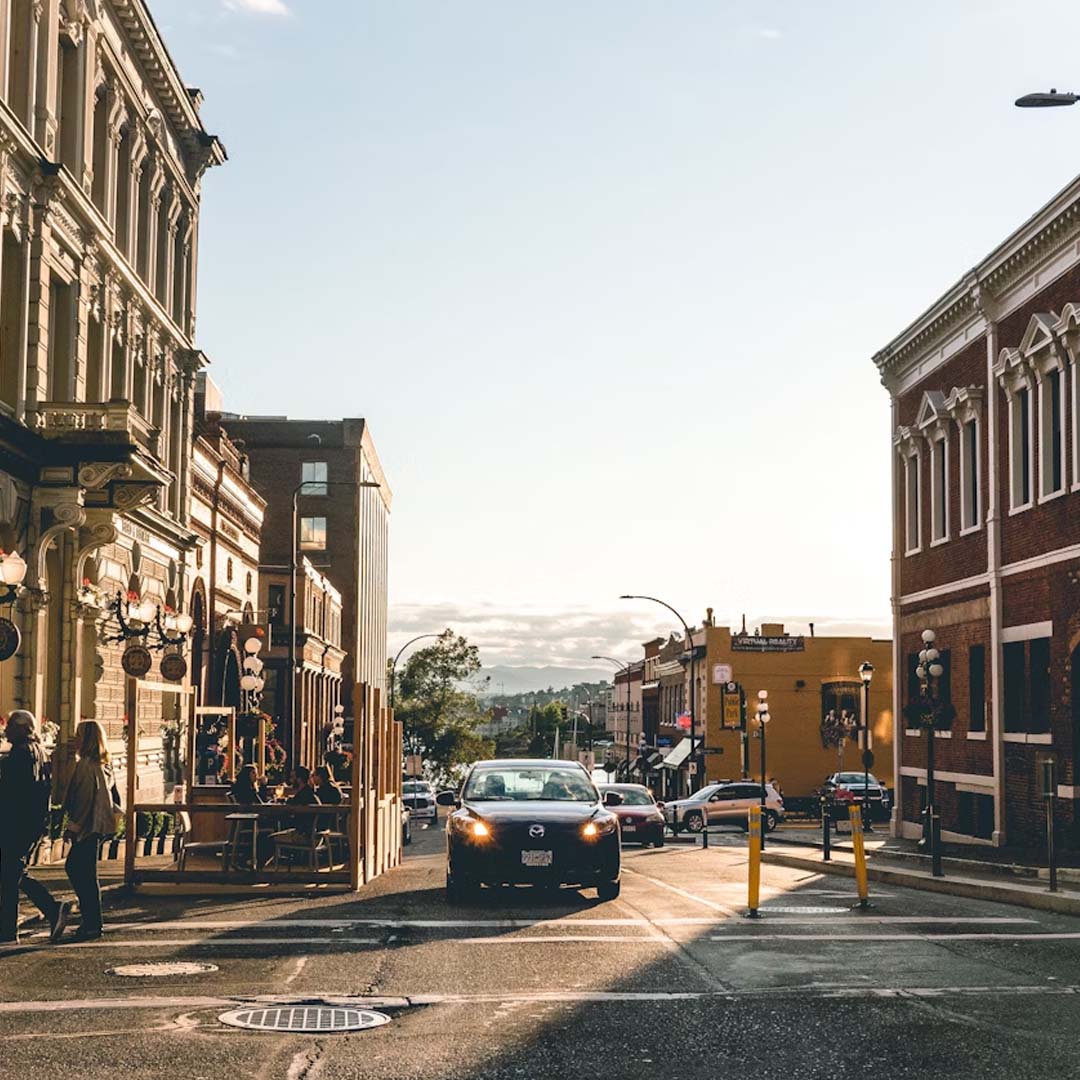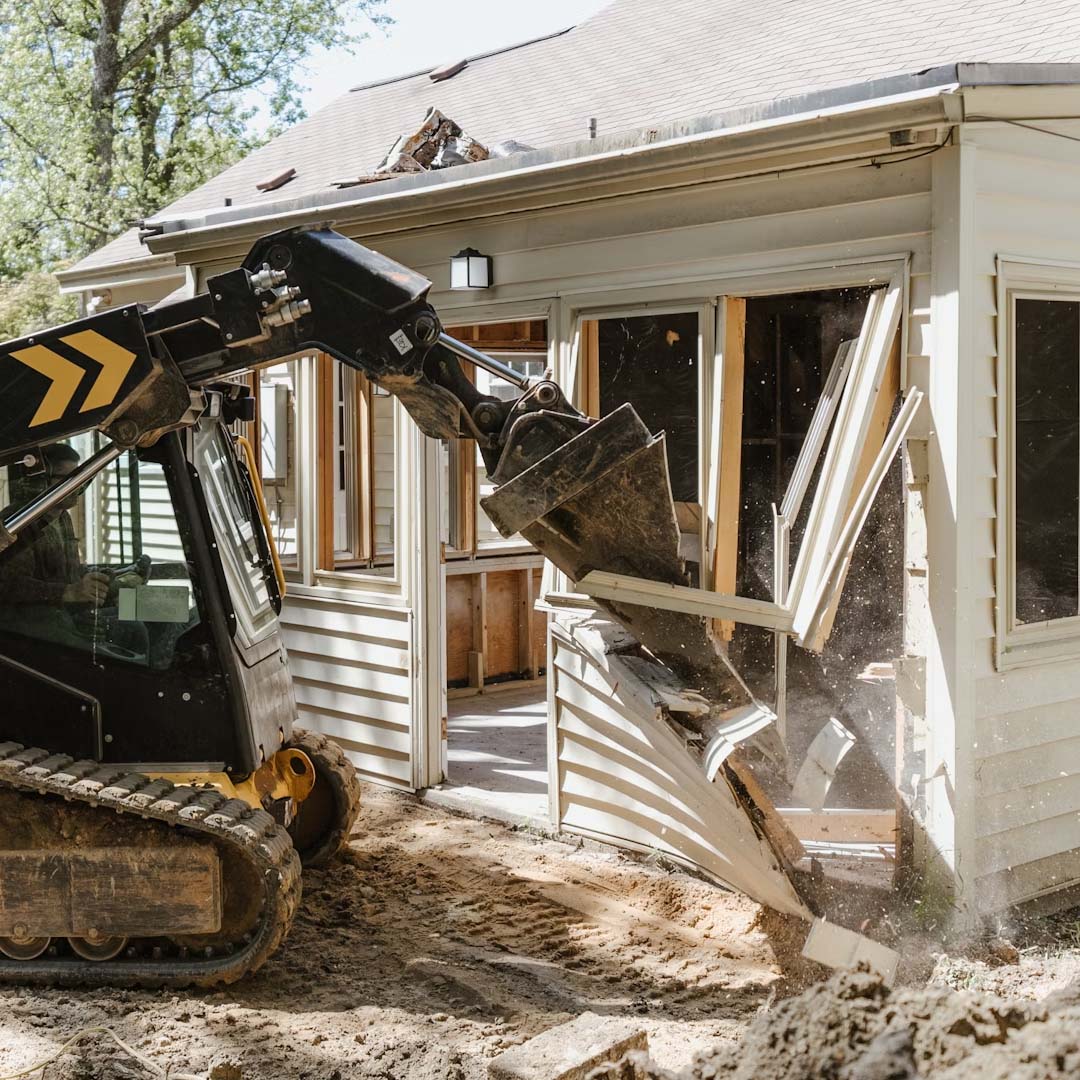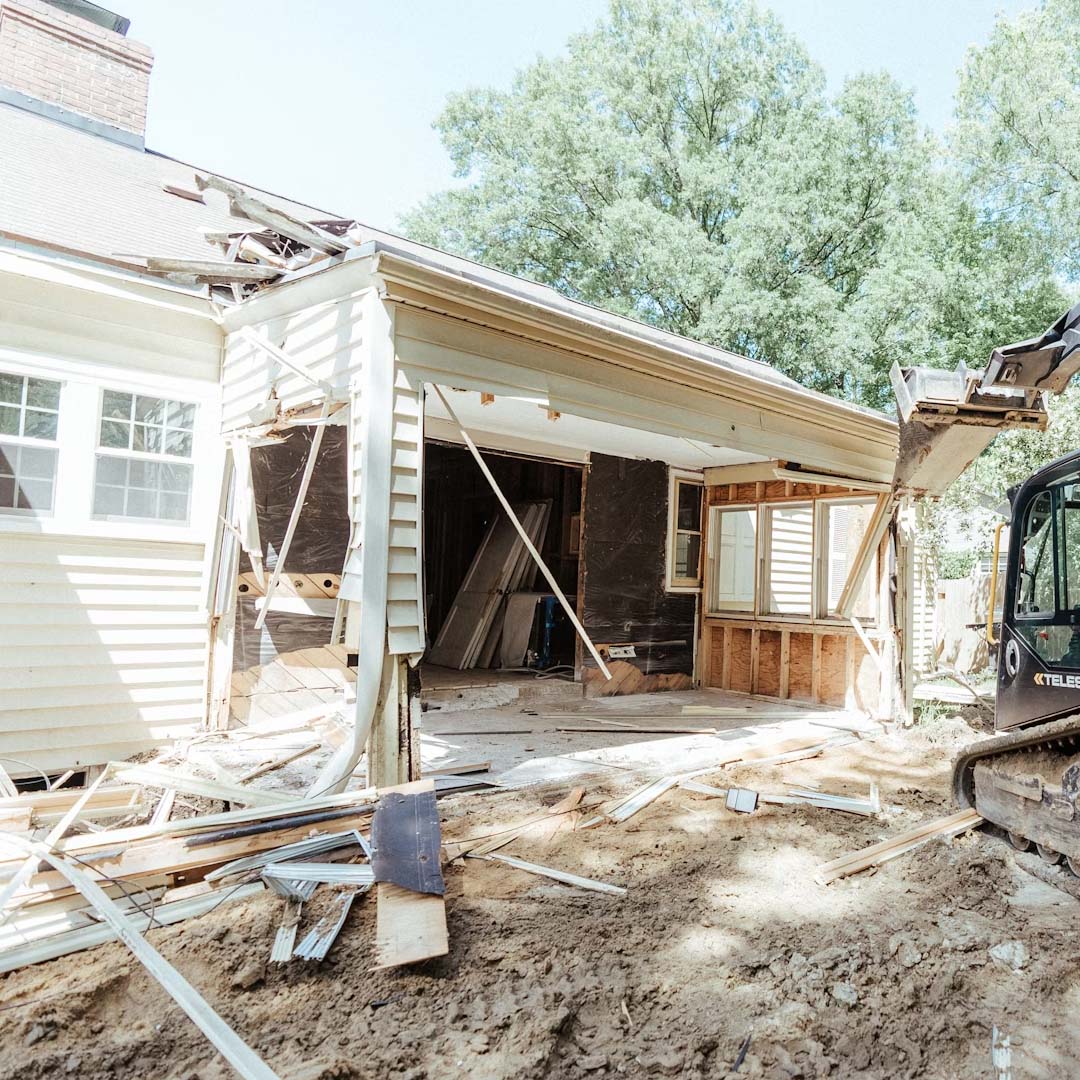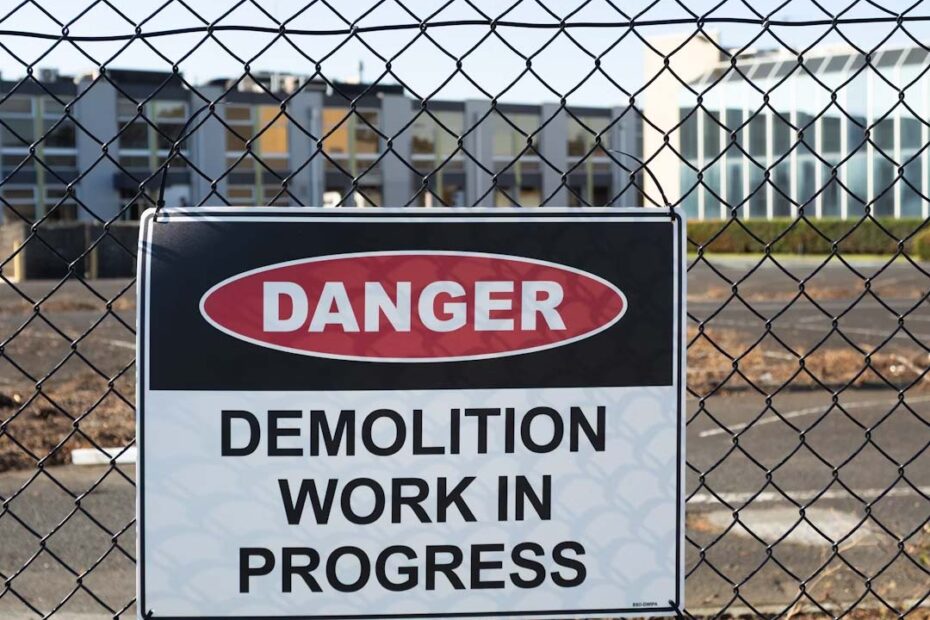Demolition projects in Victoria demand different strategies depending on whether the structure is residential or commercial. While both involve tearing down buildings, the process, permits, timelines, and environmental rules change with scale and type. Residential demolition often focuses on smaller properties and community safety. Commercial demolition can involve large structures, heavy equipment, and detailed planning. At SWIPE Contracting, we’ve worked on both ends of the spectrum, from single-family homes in the BC Interior to larger commercial spaces on Vancouver Island. This article explains the differences, what to expect with each, and how we manage projects efficiently. If you are planning a demolition in Victoria, knowing these differences will help you prepare.
Residential Demolition Victoria

Residential demolition is often required when an older home is unsafe, outdated, or replaced by new construction. These projects are smaller than commercial work, but they still demand planning. In Victoria, homeowners must apply for the proper permits before any demolition begins. The city requires a demolition permit that confirms the property complies with local zoning rules and environmental regulations. Without this, work cannot start.
Timelines for residential demolition are usually shorter. A single-family home can be taken down in days once permits are approved. Still, site preparation and safety checks come first. Utility disconnections for gas, water, and electricity must happen before anyone comes in with a wrecking ball. This protects the crew and the surrounding community.
Environmental concerns also play a big part in many demo jobs. It’s common for older homes to contain hazardous materials such as asbestos. Regulations in BC require testing and safe removal before demolition starts. This step can extend timelines but ensures the work meets provincial health standards. Swipe’s crews are trained to handle hazardous materials safely and meet WorkSafeBC guidelines.
Another factor is the neighbourhood setting. Crews must control noise, dust, and debris to minimize disruption for nearby residents. After demolition, proper disposal and recycling of materials are required. Wood, concrete, and metal often go to recycling facilities rather than the landfill.
Residential projects can sometimes also require specialized equipment to fit into tight lots, especially in urban Victoria. We have completed many residential teardowns in these settings and have found this to be true. The goal is to deliver a safe, fast, and compliant demolition that clears the way for new construction.
Commercial Demolition Victoria

Commercial demolition is a different scale altogether. Projects can range from small storefronts to large office buildings and industrial facilities. These jobs require more extensive permits, longer timelines, and specialized equipment. In Victoria, developers must secure a building permit, environmental clearance, and, in some cases, traffic control plans if streets or sidewalks are impacted.
Timelines extend due to the complexity of commercial structures. A larger building may take weeks or months to bring down safely. Planning includes structural assessments, sequencing of demolition steps, and coordination with multiple agencies. Commercial demolition often uses heavy equipment such as excavators, cranes, and high-reach arms. The work requires trained operators and strict safety controls.
Environmental considerations are greater as well. Larger sites mean more materials to handle and dispose of. Asbestos, lead paint, and other hazardous materials are common in older commercial properties. At SWIPE, we manage all of the abatement processes, ensuring all materials are tested, removed, and disposed of legally. Recycling plays a major role. Concrete and steel are separated and sent to approved facilities. This reduces waste and supports sustainable practices.
Noise and dust controls must also meet higher standards. Commercial jobs are often in busier parts of Victoria where pedestrian and vehicle traffic are nearby. Safety barriers, signage, and air monitoring are common steps. In some cases, work must happen during off-hours to reduce disruption to businesses and the public.
Work With SWIPE Contracting!

Whether your project is residential or commercial, you need a demolition contractor who understands Victoria’s rules and delivers results. We bring experience in both small-scale and large-scale jobs across the Island and the Interior. If you are planning a demolition, trust us at SWIPE to deliver safe and compliant results. Contact our team today to learn how we can support your project from start to finish.
FAQ

Which permits does the city require for demolition in Victoria?
Residential and commercial demolitions both require city permits. Commercial projects may also need environmental and traffic permits.
How long does a residential demolition take?
Once the city approves permits, crews can often demolish a residential home within a few days, depending on site conditions.
What happens to materials after demolition?
Crews recycle materials like wood, concrete, and metal whenever possible. They dispose of hazardous waste following BC regulations.
Why is asbestos testing required?
Asbestos is common in older buildings and dangerous if disturbed. Testing ensures safe removal before demolition begins.
Does Swipe handle both residential and commercial projects?
Yes. Swipe has experience with small residential teardowns and large commercial demolitions across Vancouver Island and the Interior.
